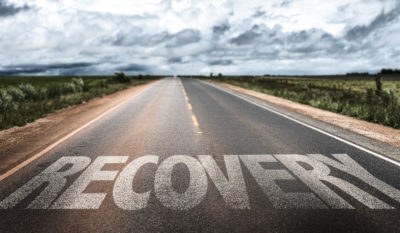 If you’ve made the challenging decision to begin a treatment program at rehab, you’ve taken the first step towards recovery. You should be proud and try your best to focus on the dreams and ambitions you can fulfill once you’re free from substance abuse.
If you’ve made the challenging decision to begin a treatment program at rehab, you’ve taken the first step towards recovery. You should be proud and try your best to focus on the dreams and ambitions you can fulfill once you’re free from substance abuse.
There is also the immediate question of which rehabilitation center is going to be best for you. With so many considerations to make, it can feel overwhelming. Here are some of the essential elements to think about when researching rehab for drugs and alcohol addiction.
What Is the Environment Like?
When you read the websites of the facilities you’re interested in, you get a good feel for what type of environment you’ll be entering. Compassion and empathy are vital tenets of any effective treatment program. Addiction is a disease, and sufferers need to be cared for, just like anyone suffering from an illness does. Read through testimonials and blogs online to get a feel for the type of environment you’ll be entering.
Traditionally, people thought of rehab as fairly cold and clinical, but there are plenty of centers that buck that trend and focus on healing the individual with deep caring and without judgment. Most rehabs will also have a gallery of photographs so you can browse to see if you like the look of the place.
Continuity of Care
If you’ve been using drugs or alcohol for a prolonged amount of time or in large quantities, you may require detoxification. It’s better to go through this process in a residential setting where you have 24-hour access to medical care. Detox is the process the body goes through when it’s ridding itself of harmful chemicals and toxins. In some cases, the clinical staff will administer medication to ease withdrawal symptoms.
Once you’ve detoxed, we recommend attending rehab in a setting with the same values and treatment style as the facility you’ve detoxed in. Consistency is important when it comes to conditions related to mental health.
Should You Begin With Residential or Outpatient Treatment?
When choosing a drug treatment program, you’ll need to decide whether to go for inpatient or outpatient care. This choice depends on several factors, including which substance you’ve been using, how long you’ve been using it, how much you’ve been taking and your individual circumstances. No level of care is better, necessarily, but you must make the right choice for your situation.
Residential
During this type of treatment, you spend a set amount of time in a highly structured environment where you have access to care around the clock. We recommend inpatient rehab to people who have been struggling with a chronic addiction over a prolonged amount of time. It’s the ideal first step to rebuilding your life, with group and individual therapy, daily meetings, psychoeducation and a ready-made network of peer support.
It allows you to remove yourself from the triggers and temptations of daily life and hit the reset button, backed up by medical professionals and licensed counselors.
Outpatient
Some people may be in a position where they can’t attend residential rehab or are in the early stages of addiction. Outpatient therapy is also the next step down from residential treatment, allowing you to receive care while learning how to maintain recovery in your home environment. You still attend individual and group therapy sessions, but you can go to work or school and sleep at home.
More Than Just Clinical Therapy
While empirically supported therapy forms the basis of rehab, certain complementary activities contribute to your recovery. Learning healthy ways to relax, being creative and eating well can take the place of substance use. Not only are they indispensable coping mechanisms, but they provide opportunities for social interaction and expression, which builds your confidence. A rehab center worth putting your trust in should provide resources so you can regularly take part in these pursuits.
Yoga and Meditation
When practiced regularly, yoga and meditation promote calmness and mental clarity, increase bodily awareness, relieve chronic stress and focus attention. Being able to recognize thoughts and feelings through mindful practice is very helpful in the long-term recovery process. We strongly recommend choosing a rehab facility that incorporates these practices into their daily schedule.
Art and Music Therapy
When you experiment with being creative, it engages parts of your brain that don’t usually work together. The more you practice at music or art, the more focused you become. Plus, it’s lots of fun! An effective rehab program will break up the day by including calming, sociable activities.
Home-Cooked, Family-Style Nutritious Meals
Addiction tends to leave people in a vulnerable position where they’re not looking after their bodies and minds. When you’re healthy, you’re stronger and better able to resist temptation and stay focused on your goals. Rehab should encourage family-style meal times where you can get back into taking care of yourself from the inside out.
Gender-Specific Treatment
Men and women tend to turn to drugs for different reasons, so there is no one-size-fits-all when it comes to rehabilitation. The medical and social consequences of drug use are unique for men and women, and gender-specific treatment means all group meetings are relevant to your needs. Additionally, with mixed-gender facilities, clients can be tempted to seek solace in relationships to escape emotional distress they may be experiencing, which can be a distraction from recovery.
Choose Accredited Drug and Alcohol Facilities
Regulatory bodies are third-party organizations that perform annual inspections to ensure a facility meets their standards. By checking whether a rehab center is licensed and accredited, you’re checking to see that they are held accountable to an impartial and independent body.
It’s also advisable to check if they have a full team of medical and support staff, including a medical doctor, licensed counselors, credentialed drug and alcohol counselors, licensed social workers and registered nurses.
New Day Recovery has helped countless people to overcome addiction and reclaim their lives. Speak to one of our advisers today at 330-886-4744 to find out how we can help you or your loved one.




